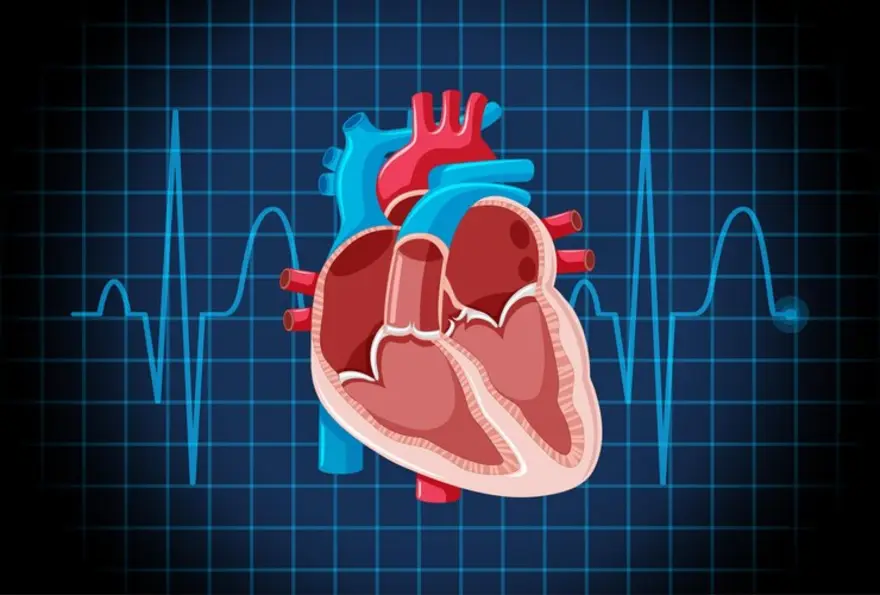Preventive Healthcare
Salmonella Typhi: Types, Symptoms, Causes, Diagnosis & Treatment
3030 Views
0

Are you feeling feverish, weak and nauseous? Have you recently travelled to a developing country or consumed contaminated food or water? If yes, then it is time to learn about Salmonella typhi, the bacteria responsible for causing typhoid fever. This highly infectious disease can cause severe complications if left untreated. In this blog post, we will discuss everything you need to know about Salmonella Typhi, from types and symptoms to causes, diagnosis and treatment options.
What Is Salmonella Typhi?
Salmonella Typhi is a bacterial infection that most often affects the intestines. It can also cause typhoid fever, which is a more serious illness. Salmonella typhi bacteria are spread through contaminated food or water or contact with someone who is infected. Symptoms of Salmonella Typhi include fever, nausea, vomiting, diarrhoea and abdominal pain. Treatment usually involves antibiotics and rest.
Types of Salmonella Typhi
There are four main types of Salmonella Typhi, each with its own set of symptoms and treatment options.
1. Salmonella Typhi A: This is the most common type of Salmonella Typhi and is responsible for the majority of cases. Symptoms include fever, diarrhoea, vomiting and abdominal pain. Treatment typically involves antibiotics and rest.
2. Salmonella Typhi B: This type is less common than Salmonella Typhi A but can be more severe, causing complications such as liver damage or kidney failure. Symptoms include high fever, chills, abdominal pain and dark urine. Treatment typically involves hospitalisation and aggressive supportive care.
3. Salmonella Typhi C: This rare type of Salmonella Typhi is similar to Salmonella Typhi B in terms of symptoms and treatment options. However, it has a higher mortality rate and can cause long-term health problems such as chronic fatigue syndrome.
4. Salmonella Paratyphi: This non-typhoidal strain of Salmonellosis can cause symptoms similar to Salmonella Typhi but is generally less severe. Treatment typically involves antibiotics and rest.
Symptoms of Salmonella Typhi

Salmonella typhi is a bacterium that causes typhoid fever. Symptoms of Salmonella Typhi usually appear 6-30 days after exposure to the bacteria.
Some common Salmonella Typhi symptoms may include the following:
- Fever
- Headache
- Muscle aches and pains
- Loss of appetite
- Diarrhoea or constipation
- Abdominal pain or cramping
- Rash
- Rose spots on the chest or stomach
Causes of Salmonella Typhi
Salmonella Typhi is a strain of Salmonella that is typically contracted through contaminated food or water.
1. Contaminated Food: Salmonella Typhi is commonly found in contaminated food, such as eggs, poultry and other animal products. Salmonella can be introduced to a food item through contact with an infected animal or from improper handling during preparation. Eating contaminated food can lead to infection.
2. Contaminated Water: Salmonella Typhi can also be found in contaminated water sources, such as recreational water (such as pools and lakes) that have been exposed to animal waste or sewage. Consuming contaminated water can also lead to infection.
3. Person-to-Person Contact: Salmonella Typhi is spread by person-to-person contact, often through contact with the faeces of an infected person. This can include direct or indirect contact (such as sharing eating utensils or drinking glasses).
Diagnosis of Salmonella Typhi
A diagnosis of Salmonella Typhi can be made based on the presence of symptoms suggestive of the infection, as well as a person's history of travel to or residence in an area where the disease is common. Blood tests and cultures can also be used to confirm the diagnosis.
Blood Test for Salmonella Typhi: A blood test is used to detect the presence of antibodies in the Salmonella typhi bacteria in a person's bloodstream.
Culture: Culturing a sample from the patient's stool or other body fluid can be used to confirm the diagnosis of Salmonella Typhi.
Treatment of Salmonella Typhi
There are three types of treatment for Salmonella Typhi: antibiotics, supportive care and vaccines.
Antibiotics are the main treatment for typhoid fever and are usually given for 14 days. Common antibiotics used to treat typhoid fever are ciprofloxacin, amoxicillin and azithromycin.
Supportive care is also important in helping treat typhoid fever. This can include drinking extra fluids, getting plenty of rest, taking pain medications for fever and discomfort and eating a healthy diet.
Vaccines are also available to help prevent typhoid fever from occurring in the first place. It is recommended that people travelling to areas where typhoid fever is common get vaccinated before their trip.
If you have typhoid fever, it is important to finish all of your antibiotics even if you start to feel better. This will help prevent the infection from coming back. It is also important to drink plenty of fluids and get rest while you are sick.
Prevention of Salmonella Typhi
The best way to prevent this infection is to avoid exposure to the Salmonella typhi bacteria. There are a few ways you can do this:
1. Wash your hands regularly and thoroughly, especially before you eat or prepare food.
2. Be careful with what you eat and drink. Only consume food and drinks from reliable sources. Avoid consuming raw or undercooked meat, poultry, eggs, and fish.
3. If you are travelling to an area where Salmonella Typhi is common, make sure you get vaccinated against the bacteria. The vaccine is safe and effective, and it will help protect you from this serious infection.
4. If you think you have been exposed to Salmonella Typhi, see a doctor immediately so that you can start treatment as soon as possible.
Salmonella Typhi is a serious infection that can cause severe gastrointestinal problems and fever. It is caused by the Salmonella typhi bacteria, which is found in contaminated food or water. Although it can be treated with antibiotics, prevention through proper hygiene and sanitation practices are the best way to avoid infection.
If you suspect that you have come into contact with this type of bacterium, consult your doctor immediately for diagnosis and treatment. You can also book a home visit with Metropolis Labs to get your blood samples collected in the comfort of your home.
 Home Visit
Home Visit Upload
Upload














1701259759.webp)









 WhatsApp
WhatsApp